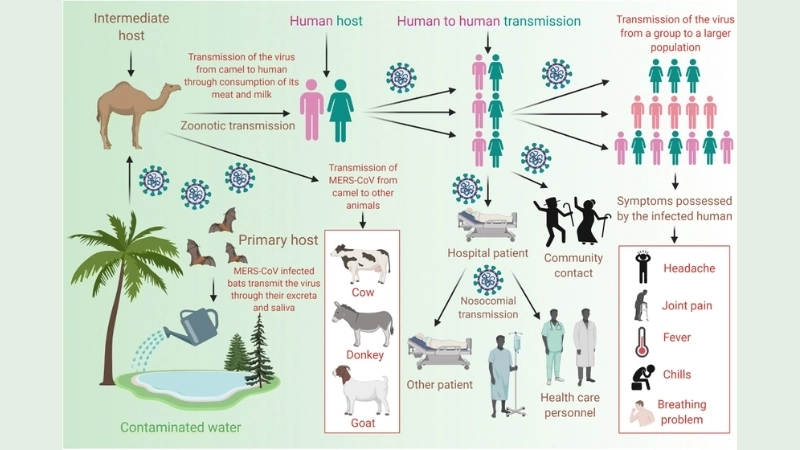Don't let the unknown put your health at risk. This vital guide breaks down Middle East Respiratory Syndrome (MERS), offering clear insights into what you need to know to stay safe. Get informed and protect yourself now!
What are the main causes of Middle East Respiratory Syndrome (MERS)?
- MERS is caused by a coronavirus, MERS-CoV, which is believed to originate in bats and is then transmitted to camels.
- Direct or indirect contact with infected dromedary camels or their products, such as raw camel milk or undercooked camel meat, is a primary source of human infection.
- Person-to-person transmission can occur in close contact settings, particularly within healthcare facilities, though this is less common than animal-to-human spread.

Key symptoms of Middle East Respiratory Syndrome (MERS) to watch for
- Common initial symptoms include fever, cough, and shortness of breath, which can range from mild to severe and may lead to serious complications.
- Gastrointestinal symptoms like diarrhea and nausea have also been reported in some patients, alongside general body aches and fatigue.
- Severe cases can progress to pneumonia and kidney failure, often requiring intensive care and leading to a high fatality rate, especially among those with underlying health conditions.
How can you prevent Middle East Respiratory Syndrome effectively?
- Avoid close contact with dromedary camels, refrain from consuming raw camel milk or undercooked camel meat, and practice good food hygiene.
- Wash hands thoroughly and frequently with soap and water or an alcohol-based hand sanitizer, especially after touching animals or potentially contaminated surfaces.
- Healthcare workers should follow strict infection control measures, including using personal protective equipment (PPE), when caring for MERS patients.
>>> Don't miss: Fifth Disease 'Slapped Cheek' Rash: A Parent's Guide
Middle East Respiratory Syndrome related photo collection to watch out for






>>> Understand more about: HMPV Explained: The 'Other' Virus Causing Cold Symptoms
Empower yourself against Middle East Respiratory Syndrome by understanding these critical points. By taking proactive measures and staying informed, you can significantly reduce your risk. Prioritize your health by following these expert guidelines.
>>> See more: Flu Season 2025: Your Guide to Symptoms & Prevention




